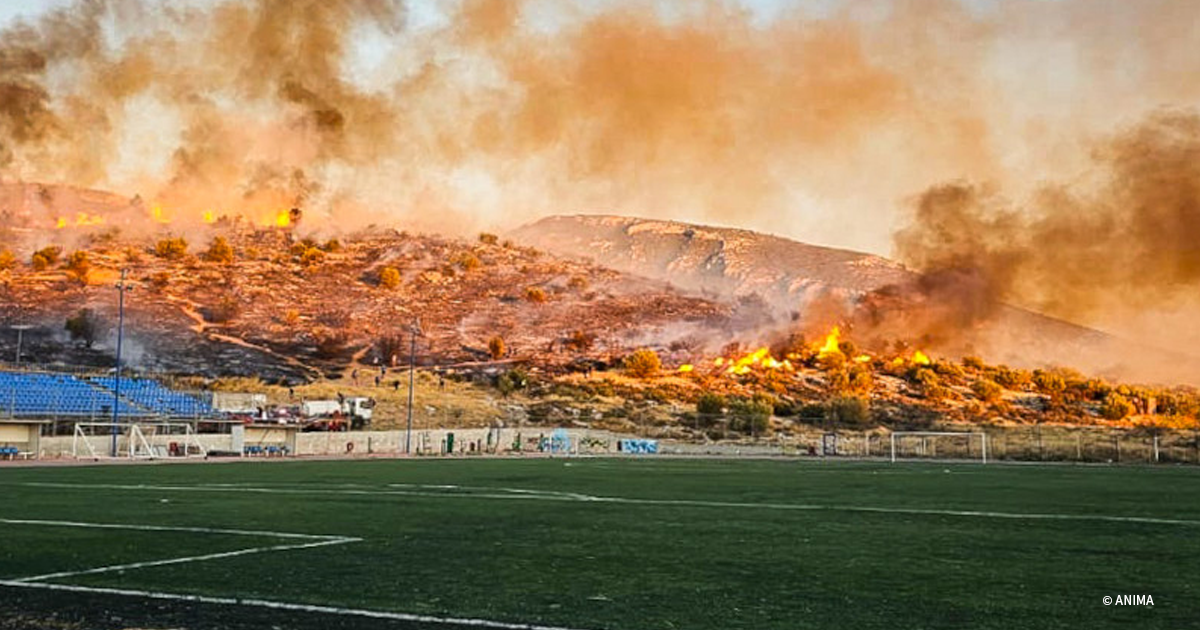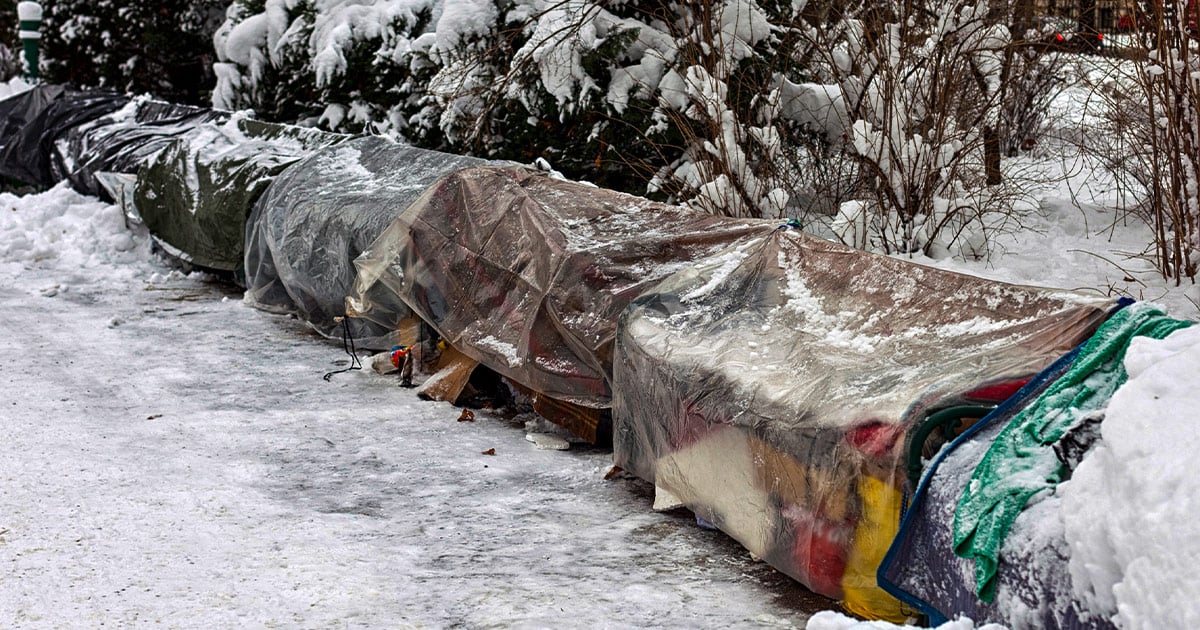Improving Lives in Refugee Camps Across Greece
Across refugee camps in Greece, stray animal populations are growing—bringing with them public health risks and stretching limited resources. But through an integrated, compassionate approach, Greater Good Charities is working to improve the lives of both people and pets.
This spring, our international team of veterinarians, trappers, educators, and volunteers partnered with local organizations and government ministries to deliver high-impact care across multiple refugee camps outside Athens. Over the course of our mission, we treated hundreds of animals, led educational sessions for children, and forged lasting trust in communities too often overlooked.

Spay & Neuter Clinics to Prevent Overpopulation
The heart of this initiative was a series of spay and neuter clinics that spanned three locations, each with its own unique challenges. Our goal: to humanely reduce the stray dog and cat populations while improving their long-term health and preventing future litters.

-
Animals Treated: more than 340
-
Services Provided: Spay/Neuter surgeries, vaccinations, microchipping, tick and flea treatment, and additional care for parasites and other conditions.
-
Partner Countries Represented: Greece, US, UK, Bulgaria, Portugal
Why It Matters
Sterilized animals are:
-
Healthier, with a lower risk of disease transmission
-
More social, less likely to show aggression or territorial behavior
-
Non-reproductive, which helps reduce overpopulation, thereby reducing waste in the environment and aggression due to competition for limited food and resources.
-
Great Companions, since healthy, non-breeding dogs and cats can offer comfort and a sense of normalcy to residents during times of transition and uncertainty.
Schisto Refugee Camp
At our first site, the team treated 87 animals in just a few hours. Cats were brought in even before dawn by volunteers to maximize the short window of time. All animals were microchipped, vaccinated, and received additional care for parasites and other conditions.

We were honored by a visit from the Special Secretary for Migration and two state veterinarians, who voiced strong support for our efforts—highlighting how animal health connects directly to community health.
Ritsona Refugee Camp
This large, complex site presented our toughest logistical challenge. Over three intensive clinic days, we treated 180 animals.

Highlights included:
-
The rescue of a kitten trapped in a sewer pipe
-
A family of 11 dogs trapped, treated, and returned together
-
A surge of kitten intakes, all evaluated for sterilization
By the final day, the impact of our educational workshops was clearly evident. Community trust had grown significantly—residents brought in the animals they were caring for in the camp, many of which lived with them.
We were deeply moved by how much people cared for the animals around them and the vital role these companions played in their lives—providing comfort and a sense of stability. Several residents even approached us to share stories of beloved pets they had to leave behind in their countries of origin, expressing how deeply they missed them.
Thermopylae Camp
In an open environment, trapping animals was more challenging. Despite this additional difficulty, our team successfully treated over 70 animals.

Due to the camp's proximity to water, there was a notable increase in the populations of mosquitoes and other flying insects. This raised concerns about a potentially high prevalence of Leishmania infection—a disease transmitted by sandflies that can also affect humans. As testing for the disease is legally mandated, all dogs in the area were screened, and those that tested positive were cared for by the local municipality.
Education & Youth Engagement
Beyond clinics, our team also focused on education and emotional connection, especially with young learners. These efforts were essential for creating a culture of compassion and responsibility toward animals. Our team of volunteers and staff provided engagement, educational sessions, and fun activities for kindergarteners across 3 refugee camps. Additionally, we donated school supplies, art kits, sports equipment, and plush animals for child enrichment.

Animal Welfare Education
Led by our Animal Welfare and Wildlife Expert, Dave Pauli, our education sessions featured engaging, age-appropriate lessons on animal care using stuffed animals “Pinky” and “Mitchell.” Children learned about:
-
Animal body language and safety
-
How to care for pets with empathy
-
The importance of treating all animals with respect

Children proudly introduced us to the cats living near their playgrounds, sharing stories about where they sleep and how they interact.
Environmental Enrichment
In partnership with camp teachers, our Director of Global Volunteer Management, Nate, led the kindergarten class in a gardening activity—planting pollinator gardens and teaching children about bees, butterflies, and their role in healthy ecosystems. These gardens offered not just beauty, but a chance for kids to take ownership of their environment.

Support for Learning & Play
With support from the Ministry of Education, we donated:
-
Notebooks, pencils, and crayons (for many, their first school supplies since arriving)
-
Art kits, coloring pages, and toys
-
Sports equipment like soccer balls, jump ropes, and hula hoops

At every site, we joined the kids in football games, bracelet-making, and creative projects—building bonds and reinforcing the importance of kindness, both to animals and to one another.
We witnessed firsthand, that when communities are empowered with education, tools, and a voice in the process, real change takes root.
You can help us keep going.


